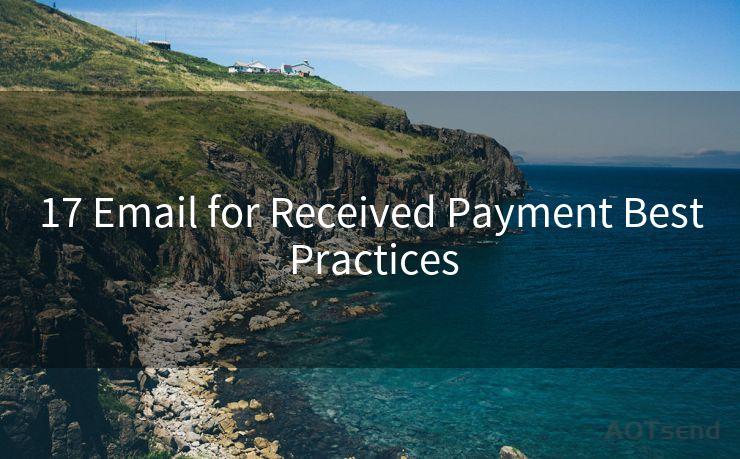17 Email for Received Payment Best Practices




When it comes to business communications, few things are as important as acknowledging payment receipts. Not only does it confirm the transaction for the customer, but it also builds trust and professionalism. Here are 17 best practices for crafting effective payment received emails.
1. Clear Subject Line
Start with a clear and concise subject line that immediately informs the recipient that their payment has been received. For example, "Confirmation: Your Payment Has Been Received."
2. Personalized Greeting
Always open with a personalized greeting using the customer's name. This adds a touch of warmth and makes the email feel less automated.
3. Express Gratitude
Thank the customer for their payment. A simple "Thank you for your prompt payment" goes a long way in fostering goodwill.
4. Confirm Payment Details
Include the specific details of the payment, such as the amount, date, and invoice number, to ensure clarity and transparency.
5. Transaction Summary
Provide a brief summary of the transaction, including the product or service purchased, to help the customer recall the purchase.
6. Next Steps
If there are any further actions required by the customer (e.g., downloading a product, scheduling a service), outline these clearly.
7. Access to Additional Resources
Offer links to relevant resources, such as product manuals, FAQs, or customer support channels, to enhance the customer experience.
8. Encourage Feedback
Invite customers to provide feedback on their experience, either through a survey link or a direct email address.

9. Maintain Professional Tone
Ensure the language used is professional and reflects the brand's voice, while still being approachable and friendly.
10. Avoid Redundancy
Keep the email concise and avoid repeating information that was already communicated in previous emails or on the website.
11. Mobile-Friendly Format
Ensure the email is optimized for mobile reading, as many customers check their emails on the go.
12. Secure Links
If including links in the email, make sure they are secure (HTTPS) to maintain customer trust.
13. Privacy Reminder
Include a brief note about how customer data is protected, reassuring them of the company's commitment to privacy.
14. Unsubscribe Option
Always provide an unsubscribe link to comply with email marketing regulations and respect customer preferences.
15. Contact Information
Include the company's contact information, such as a customer service email or phone number, for any follow-up questions.
🔔🔔🔔
【AOTsend Email API】:AOTsend is a Managed Email Service for sending transactional emails. Support Email Types: reminders, authentication, confirmations, notifications, verification codes, invoices, password resets, account activations, billing statements, two-factor authentication (2FA), and one-time passwords (OTP) emails, etc. $0.28 per 1000 Emails. 99% Delivery, 98% Inbox Rate.
You might be interested in:
Why did we start the AOTsend project, Brand Story?
What is a Managed Email API, How it Works?
Best 25+ Email Marketing Platforms (Authority,Keywords&Traffic Comparison)
Best 24+ Email Marketing Service (Price, Pros&Cons Comparison)
Email APIs vs SMTP: How they Works, Any Difference?
16. Proofread and Test
Thoroughly proofread the email for grammar and spelling errors, and test the email in different email clients to ensure compatibility.
17. Consistent Branding
Maintain consistent branding throughout the email, including logos, colors, and fonts, to reinforce brand recognition.
By following these best practices, businesses can not only improve their communication efficiency but also enhance customer satisfaction and loyalty. Remember, every email is an opportunity to strengthen the relationship with your customers, so make sure each one is crafted with care.




Scan the QR code to access on your mobile device.
Copyright notice: This article is published by AotSend. Reproduction requires attribution.
Article Link:https://www.mailwot.com/p7023.html



